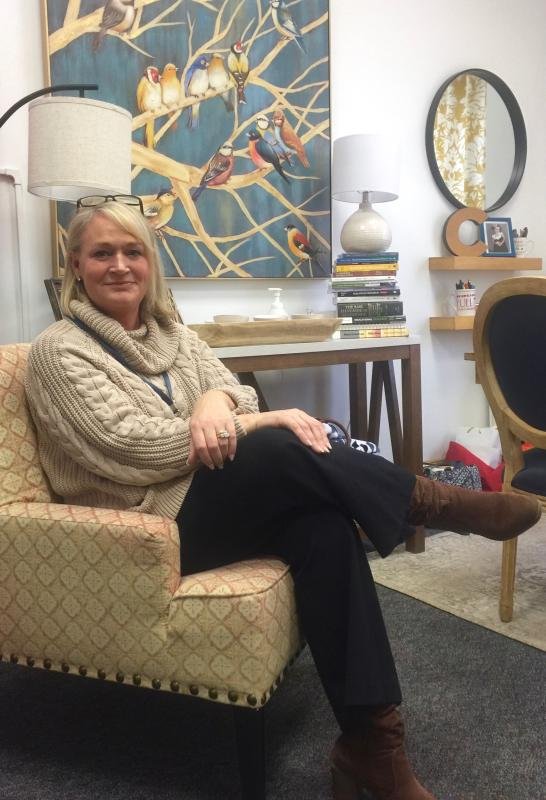BRHS Principal Tricia Campbell receives doctorate
Boothbay Regional High School Principal Dr. Tricia Campbell. FRITZ FREUDENBERGER/Boothbay Register
During the pandemic, many people took up new activities to stay active while being safe. Some began bird watching, others learned to bake and some dug into their backlogged reading lists. Boothbay Region High School Principal Tricia Campbell decided to enter a doctorate program.
Two years later, Campbell has earned a Doctor of Education degree, or Ed.D., from University of New England this spring. Her hooding ceremony is May 19, and UNE commencement is May 20.
She started as BRHS’s principal in 2020 and is BRHS’s first woman in the job. Before that, she was interim principal of BRHS, assistant principal at Boothbay Region Elementary School and worked in Wiscasset schools.
This is her fourth degree. “I believe that we always have something to learn,” Campbell said. “We should always be seeking out education and to increase our knowledge, and that's exactly what (this degree) did.”
Campbell started the Ed.D. in April 2021, encouraged by friend and colleague Shawna Kurr, principal of BRES. Kurr is also working on an Ed.D. at UNE. The two have been collaborators and supporters during the process.
“Her and I were tremendous partners in preparing and readying our school district and our community during COVID,” Campbell said. “The idea that we did this during that process, in reflection, is crazy to me.”
UNE’s website says the online degree can be completed in three years, sometimes less. Campbell applied credits from a previous post-graduate degree to finish sooner. And she put in a lot of hard work.
“I certainly did not need to be so intensive about trying to get it done in two years, but I set myself a personal goal,” she said. There was some added motivation: Daughter Grace is a BHRS senior. “The class of 2023 is a great class and I’ve seen them grow up since they were toddlers ... How amazing would it be and what a great sense of pride (it would provide) to graduate the Boothbay Region class of 2023, my daughter and her classmates as Dr. Campbell.”
Campbell's dissertation explored the perceptions of school leaders and how they influence school culture. According to her, understanding how culture impacts teachers and instruction all the way up the education system is critical. “At the heart of that is leadership,” she said.
To explore the relationship, she focused on schools in Midcoast Maine starting in the 2022-2023 school year. She interviewed principals in pre-K through 12th grade systems and researched their schools’ decision-making, missions and policies.
“The bottom line is that leadership plays an intricate role in the impact of school culture,” she said. “What I found was that the perceptions, how we as principals look at our schools and analyze and choose decisions that we make, truly have a domino effect. Each decision we make impacts not only the big picture but the intimate operations of our school from classroom instructional practices to teacher retention.”
She said the qualitative case study provides support to principals to explore how educational leaders might influence school culture and affect meaningful change.
According to her, it is important to recognize and serve all school community members. She said a positive culture exists when school leaders support collaboration, a shared vision and recognition of success.
“I believe in celebrating everything that's unique about our community,” she said. “It can't be about scores and testing, which often drives big picture at state and national levels ... That’s not what's at the heart of a school system, and it's certainly not what's at the heart of a community when we talk about our schools.”
According to Campbell, continuing her education is about more than just her own goals, but also supporting her community. She said it demonstrates the benefits of being a lifelong learner to both students and fellow educators, and she looks forward to using the lessons she has learned.
“It’s about what I can bring back to my school,” she said. “I have an increased awareness of the impact of my role as a leader here in the school, how my decisions influence the teachers and the students, and how I can apply that.”

